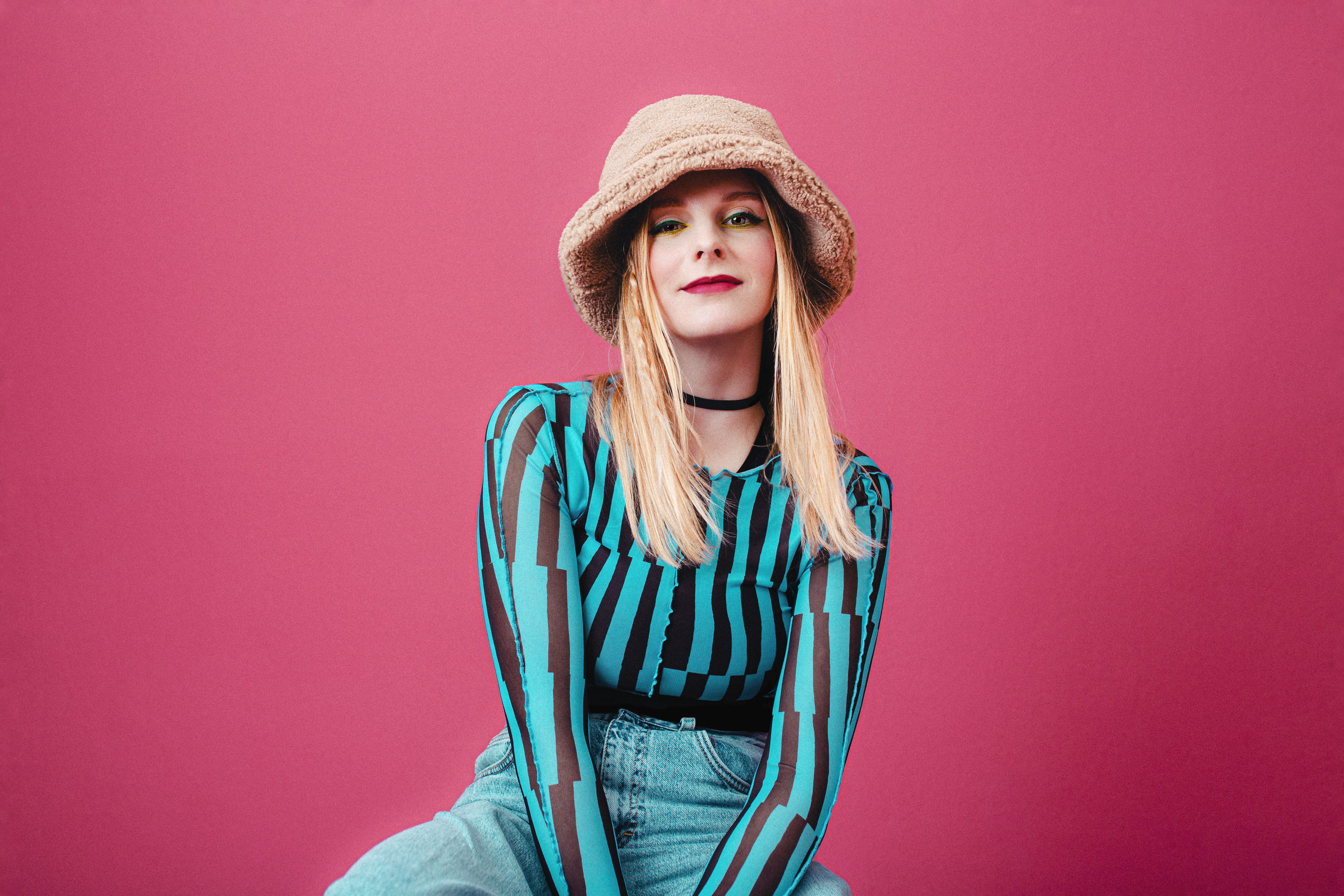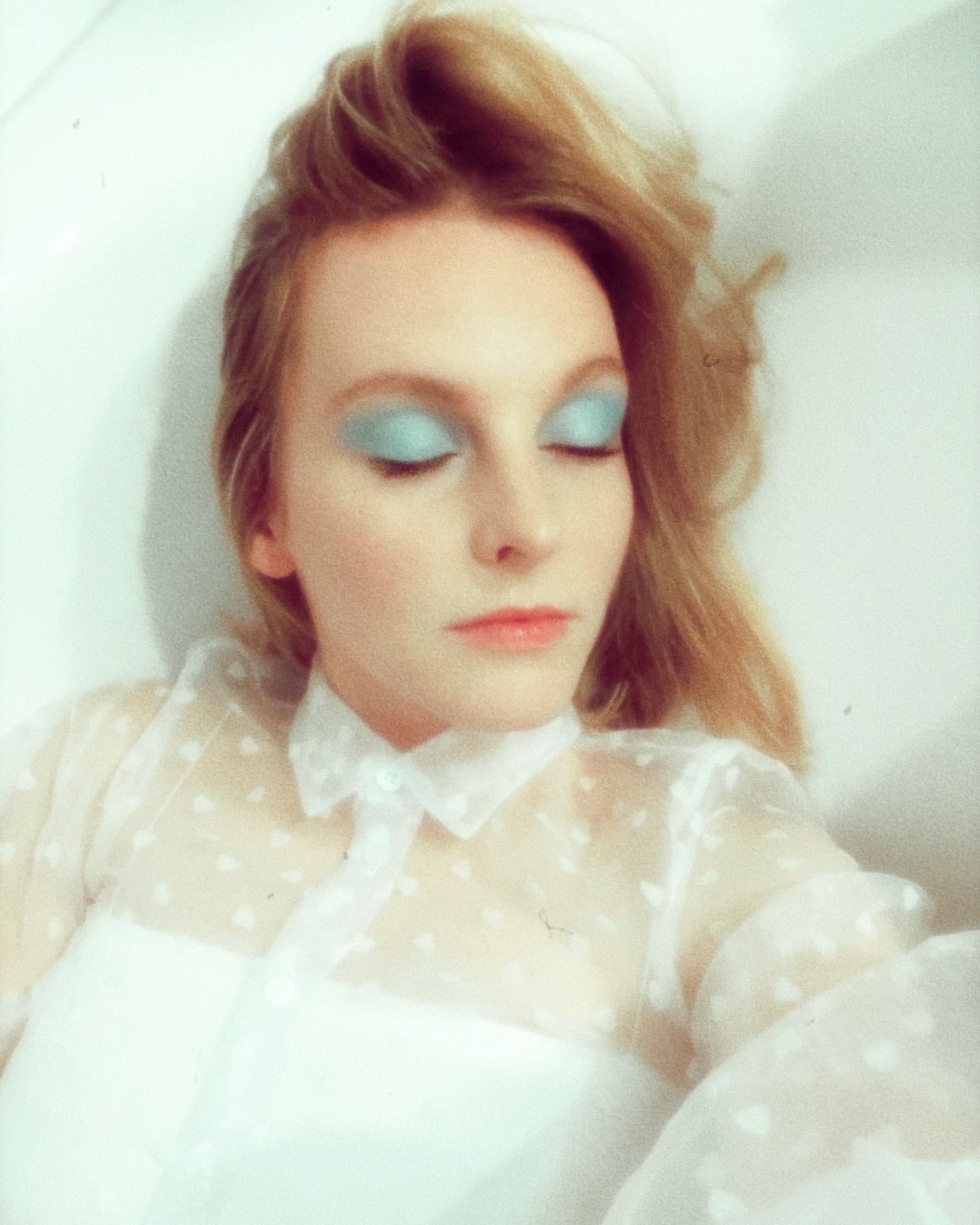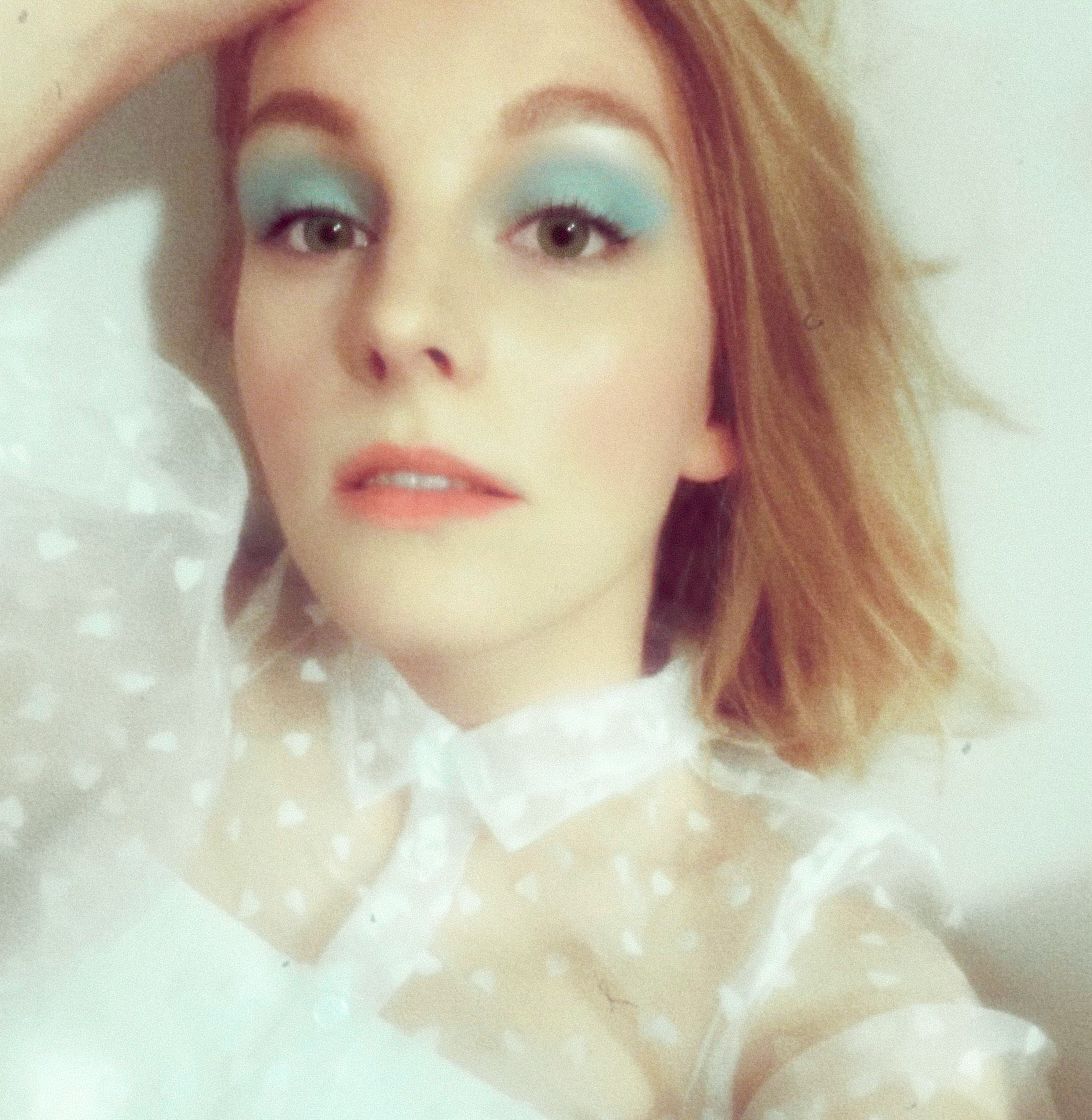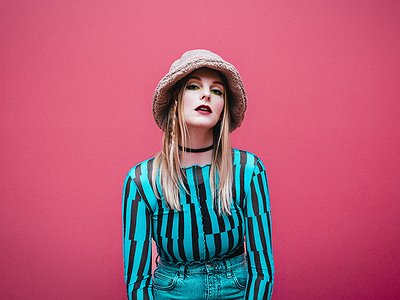Name: Vivie Annn aka Bowie
Occupation: Singer, songwriter
Nationality: German
Current Release: Bowie's new single "Stay" is out now.
Recommendations: Music: The album kids by Noga Erez impressed me so much when I heard it the first time.
Book: Rupi Kaur's Home Body - that did wonderful things to me.
If you enjoyed this Bowie interview and would like to stay up to date with her music, visit her on Instagram, Facebook, and tiktok.
Where does the impulse to create something come from for you? What role do often-quoted sources of inspiration like dreams, other forms of art, personal relationships, politics etc play?
The urge to create music and lyrics has always been a part of me; I cannot imagine myself without it. It has always been strong, even as a kid. Especially when I had to go through stages of emotional pain; music helped me a lot.
Writing songs is like getting rid of some of the load you carry around each day. So I always draw inspiration from my emotions. I write about how I conceive the world and how certain people or incidents make me feel. So some of my songs are about my biography, reflections of important moments in my life, about getting over something, or just how I see myself.
'XO,' for example, is a song in which I promised to be perpetually honest and true to myself. That song seemed to write itself after a very long period of creative silence. I was feeling very lost and numb in that time, and writing that song basically put me back on track and was the foundation for any other following songs.
For you to get started, do there need to be concrete ideas – or what some have called a 'visualisation' of the finished work? What does the balance between planning and chance look like for you?
I think I always have a very strong vision of how a song should feel, even in the very first steps of writing it. Whether focusing on the melody, production, mix, or even the music videos, all elements must align with that intended feeling. So if I am lucky and don’t get distracted, I only need to reveal what’s already there.
The draft for the music video for 'Good all on my own' was done in no time. It was about creating an infinite loop of getting tidied up and messing myself back up again because I couldn’t stand the idea of a Barbie-like doll version of me.
The idea felt just right from the moment it was on the table. So the rest was basically doing the homework and making other people see it. :)
Bowie Interview Image by Ingo Stahl
Is there a preparation phase for your process? Do you require your tools to be laid out in a particular way, for example, do you need to do 'research' or create 'early versions'?
Actually, I have a very impulsive way of doing things, not only in my art. Haha ...
When an idea strikes me, I just have to be ready to receive it. Sometimes I am in the car, in the train, in the shower—often in the middle of the night when I can’t just run to the piano to play what I just imagined. So my phone is full of whispered melodies, barely audible, random text fragments that I have to try to decipher the next morning.
As a mother of three, there’s not much time and space for a creative routine. I simply embrace whatever comes to mind, whenever it does. I believe my music thrives on the chaos of my life. The more I plan out my creative process, the more I tend to overthink. So I need a certain amount of stress to outwit my brain.
When do the lyrics enter the picture? Where do they come from? Do lyrics need to grow together with the music or can they emerge from a place of their own?
For my songs, music and lyrics are inseparable. Sometimes it’s just one line that opens up an emotional chapter, and other lines follow to feed that emotion.
I need to sing the words; they mean different things with another melody to me. So it necessarily has to be written at the same time.
What makes lyrics good in your opinion? What are your own ambitions and challenges in this regard?
Good lyrics, for me, sound super plain and simple but mean the world to people when they hear them.
I am not easily satisfied with my lyrics; I try to get the best out of them until the end, and I always need to find the one phrase that says exactly what I want to convey. So in my songs, you won’t find some leftover stopgap or hollow phrases just to match the rhyme.
Sometimes I have to take the songs along for weeks or even months to finish them. But when I’m on stage performing, I know that it was worth taking the time.
Bowie Interview Image by Julis Trautvetter
There are many descriptions of the creative state. How would you describe it for you personally? Is there an element of spirituality to what you do?
I mean, yes, sometimes you have these moments you keep talking about in interviews where you just sit down, and the whole song comes out as one from top to bottom. Half an hour, done. These moments do exist, and of course, that feels almost spiritual, like being deeply connected to a higher power that helps you forge something without hesitation. It’s just flowing through you, and you let it happen.
That’s definitely unearthly and close to a superpower, but it’s also very rare and unwise to wait for these situations to occur. Most of the time, to be honest, it’s just hard work to finish drafts, to get your ideas done, to not lose your vision, to let the song make it through until it’s released. So there’s a truly unromantic part to it, which is often untold but nevertheless important for being an artist.
For example, 'Stay' was both. It came out in one piece, and I knew exactly what it should sound like, but it went through an odyssey of corrective stages where I wanted it to be not cheesy but truly romantic. That took me like forever.
When you're in the studio to record a piece, how important is the actual performance and the moment of performing the song still in an age where so much can be “done and fixed in post?“
Actually, that is an interesting question. I always find that the studio is not the place where I am the most free, but the stage is. So what I try to do is singing whole takes of the song.
For instance, the outro section takes on an entirely different energy when I sing it continuously compared to dropping in. It’s just way more emotional for me. I still try to get the best out of every line, cutting and rerecording sections, of course, but I always strive for that one take where I genuinely felt it. So I can always come back to that and spot it in the final mix.
'Keeper' was one of these songs; I needed to perform it to get this 'out of breath,' live-high-energy feeling in the end
Once a piece is finished, how important is it for you to let it lie and evaluate it later on? How much improvement and refinement do you personally allow until you're satisfied with a piece? What does this process look like in practise?
One of the most challenging aspects of writing alone is to NOT evaluate what you are about to create. I still have to remember and discipline myself to just stay in the moment of creating. That can be really hard, especially when you’re feeling insecure about any part of your art anyway. But when I reflect on an idea later on, I've learned to trust my judgment.
Occasionally, I discard entire song drafts, but if there’s something captivating about it, I persist, digging deeper to refine and complete it.
Even recording a solo song is usually a collaborative process. Tell me about the importance of trust between the participants, personal relationships between musicians and engineers and the freedom to perform and try things – rather than gear, technique or “chops” - for creating a great song.
I have only a very small group of people I trust enough to show my early songs versions to. I've come to learn that people, with just a few words, can destroy the fragile vision I hold for a song.
However, at a certain point, I recognize the importance of feedback, and I always know what to expect from whom. There's the pessimistic critic, the enthusiastic supporter, the one who adores everything I create, and the one who consistently contributes great ideas or inspiration. A finished song has to pass all of these people.
And sometimes the disapproval of the pessimist is exactly what I need to be sure about the track.
What's your take on the role and importance of production, including mixing and mastering for you personally? In terms of what they contribute to a song, what is the balance between the composition and the arrangement (performance)?
For me, that is a process in itself. Most of the time, the composition is entirely finished when we step into the studio. My producer enjoys a lot of freedom because I admire his work and style, and I trust him deeply. However, he needs to understand and align with my vision. When I have the feeling that we get off track, we have to start from scratch.
Most of the time, the production surprises me in a very good way, adding extra layers of emotional power that I wouldn’t have imagined writing the song. Mixing also adds value and unmasks the producer’s vision.
I believe that every step in the process is crucial to convey the intentional emotion to the listener. And everything is just as important. Jack Stratton from Vulfpeck said: 'Does a mix matter? Yes, a mix is the most important thing, and no, a mix is the least important thing.' I like that quote very much. It is all so random and still sometimes it’s like magic and changes everything.
Bowie Interview Image by Julis Trautvetter
After finishing a piece or album and releasing something into the world, there can be a sense of emptiness. Can you relate to this – and how do you return to the state of creativity after experiencing it?
I think when you release a song, you put it out of your hands and entrust it to other people. They make it their own; they take from it what they need in their very situation. That might be very far from what made you write the song in the first place. So you have to be very aware of which kind of expectations you attach to the resonance of your audience.
I always try to make my music for me, how I want it to sound and look. So I can’t disappoint myself in that matter. But ridding myself of the effects of other people's judgment is a tough challenge. I’m getting better and better, trying to focus on the many moving messages I receive from people. Yet, I always require some time to rediscover a sense of freedom.
So yes, the release period is mostly not songwriting time. :)
Creativity can reach many different corners of our lives. Do you personally feel as though writing a piece of music is inherently different from something like making a great cup of coffee? What do you express through music that you couldn't or wouldn't in more 'mundane' tasks?
I get your point, and maybe you’re right, but I think, as artists, we are all very different and individual. Every artist has his or her way of expressing and connecting with people.
Making coffee might be the art form for someone, but for me, it clearly is creating songs and singing them live. I feel as if I could express any nuance of emotion through music and as if singing is like being home. And I’m sure that this cup of coffee from the coffee-brewing artist would be able to move me just as much.







